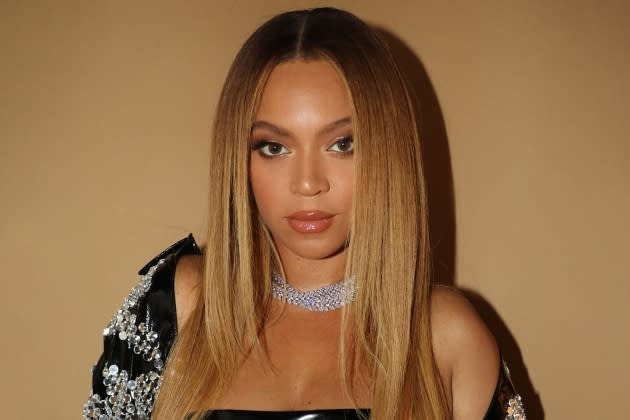Beyonce to Change Offensive Lyric on ‘Renaissance’ Song ‘Heated’ After Backlash
- Oops!Something went wrong.Please try again later.

Beyoncé will replace an offensive lyric on her just-released Renaissance album after a line in the track “Heated” drew backlash from users on social media. A spokesperson for the singer told Billboard in a statement on Monday morning (Aug. 1) that “the word, not used intentionally in a harmful way, will be replaced.”
At press time, it appeared the recorded version — which includes the offending lyric — was still available on Apple Music and Spotify. In the uptempo dance song, Beyoncé drops into a frenzied, explicit sex rap near the end in which she growls, “Yadda yadda yah, yadda yaddah yah,yah/ Yadda yadda yadda, bom bom, kah kah/ Spazzin’ on that a–/ Spaz on that a–/ Fan me quick, girl, I need my glass.”
More from Billboard
The medical condition the slang term derives from is “spastic,” which refers to a “condition in which muscles stiffen or tighten, preventing normal fluid movement.” In addition to blowback on social media, disability advocate and writer Hannah Diviney wrote an op-ed in The Guardian on Monday (Aug. 1) in which she said that her “heart sank” when she heard the Renaissance lyric. “It’s not very often that I don’t know what to say, rendered speechless by ignorance, sadness and a simmering anger born of bone-deep exhaustion. But that’s how I feel right now,” Diviney said, noting that it’s been just six weeks since she called out Lizzo for using the same word on her Special song “Grrrls.”
“That tweet of mine – which explained how the slur was connected to my disability, cerebral palsy – took me less than five minutes to write and it went viral, landing on the front page of global news outlets including the BBC, New York Times and the Washington Post,” Diviney said of the comment that resulted in Lizzo apologizing for using the offensive term and then changing the lyric.
At the time, Lizzo said she was “proud” of her “listening and taking action” after hearing Diviney’s callout. At press time, it did not appear the Beyoncé had personally responded to the outrage, which Diviney wrote she thought was a thing of the past. “I thought we’d changed the music industry and started a global conversation about why ableist language – intentional or not – has no place in music,” Diviney wrote. “But I guess I was wrong, because now Beyoncé has gone and done exactly the same thing,” she added about “Heated,” which counts Drake as a co-writer.
“I found out by way of a snarky mention on Twitter asking if I planned to tell Queen Bey to ‘do better’ like I had with Lizzo. My heart sank. Here we were again, but this time the stakes feel higher. Calling this one out is a whole other level. Whenever Beyoncé so much as breathes it becomes a cultural moment,” Diviney continued.
“Beyoncé’s commitment to storytelling musically and visually is unparalleled, as is her power to have the world paying attention to the narratives, struggles and nuanced lived experience of being a black woman – a world I can only ever understand as an ally, and have no desire to overshadow,” she added. “But that doesn’t excuse her use of ableist language – language that gets used and ignored all too often. Language you can be sure I will never ignore, no matter who it comes from or what the circumstances are.”
While the Beyhive exploded with excitement over the weekend about the dance-heavy collection, it has already garnered some additional backlash from singer Kelis, who vented her frustration last week about not being informed that her frequently sampled 2003 single “Milkshake” was interpolated on the Renaissance song “Energy.”
While Kelis appeared to be stung by what she considered a lack of professional courtesy from Queen Bey in allegedly not reaching out to inform her about the “Milkshake” mash-in, legal experts noted that because Kelis was the performer, but not the composer producer, on the song, there was no legal requirement to give a heads up.

